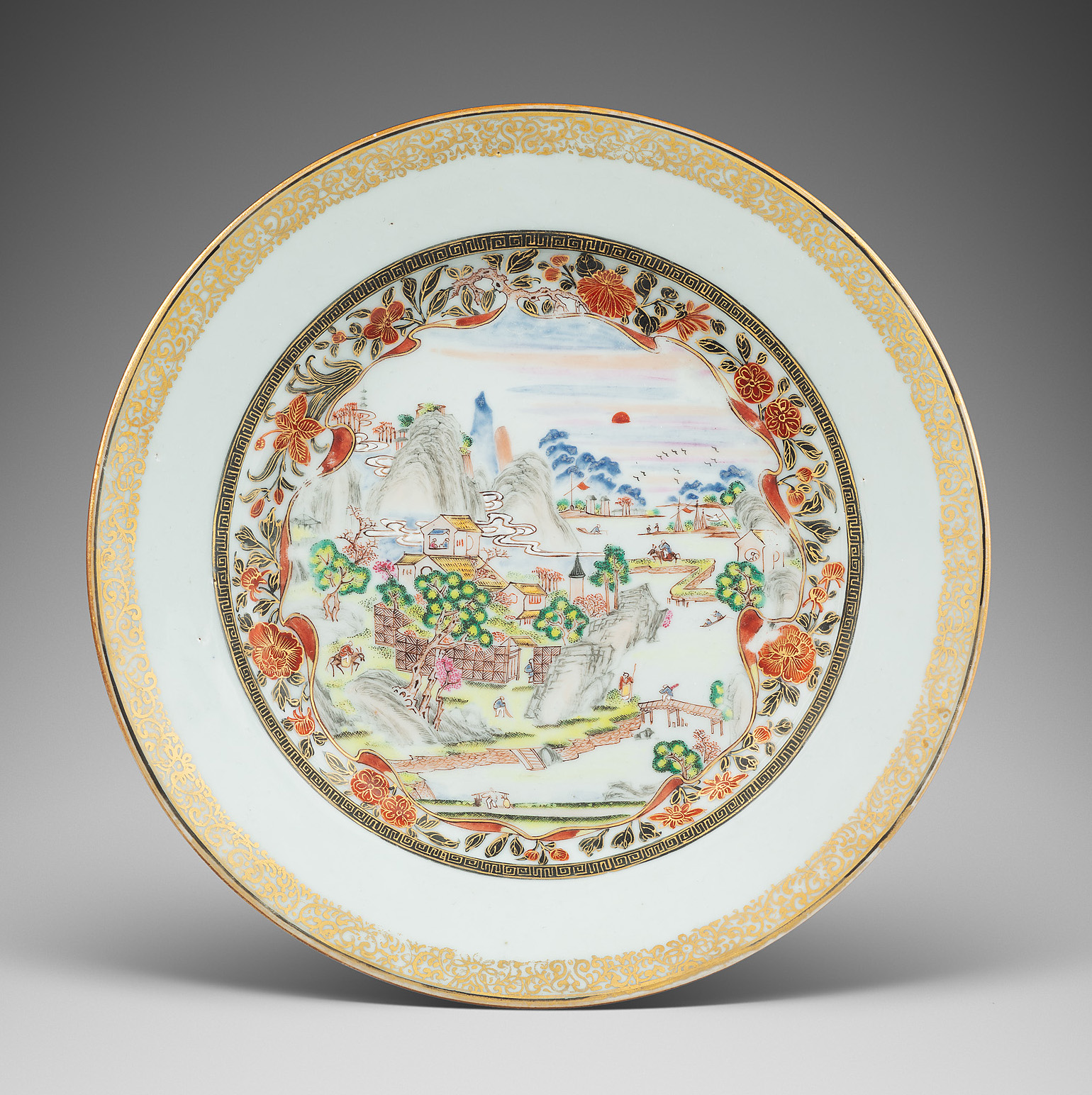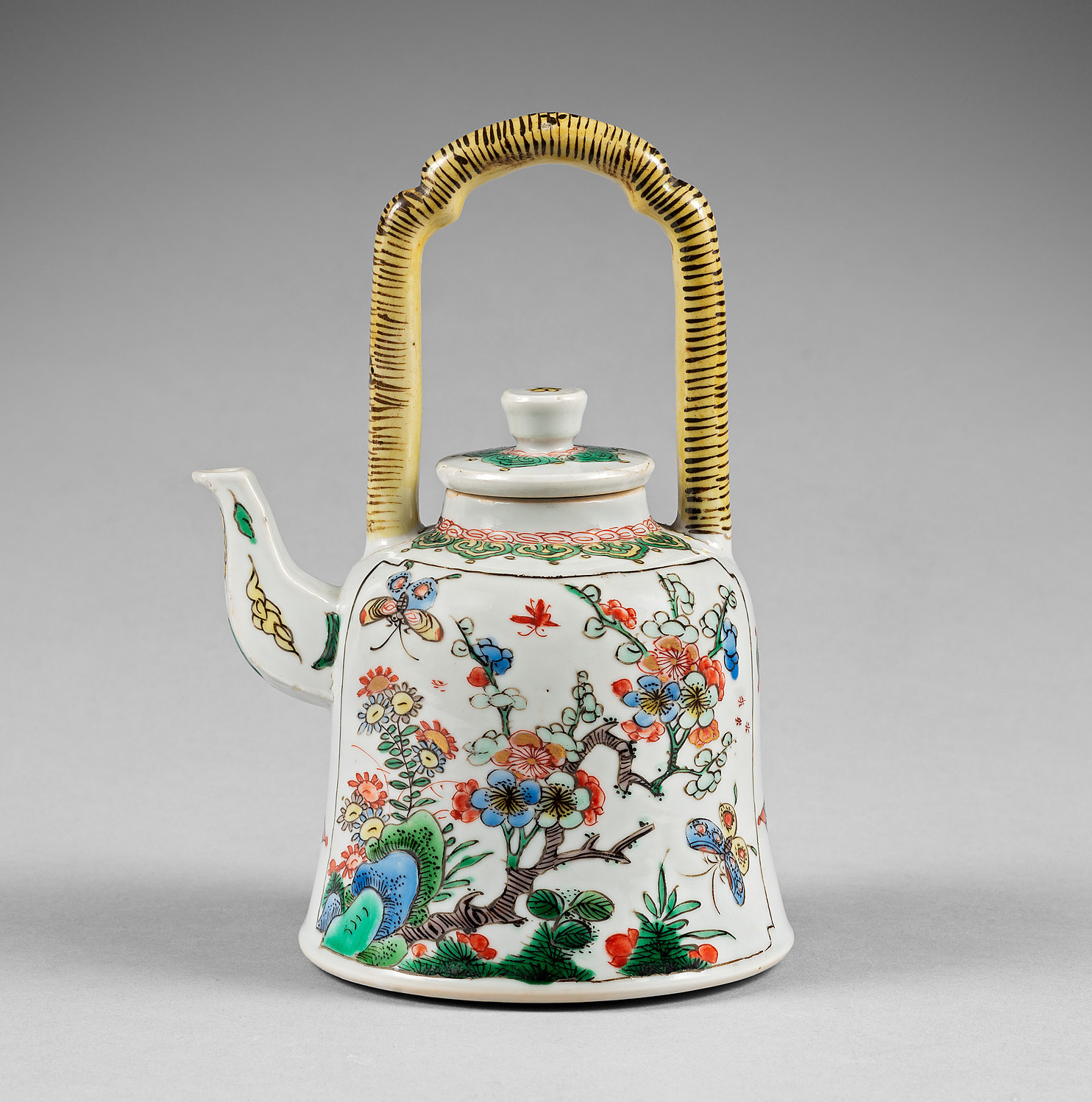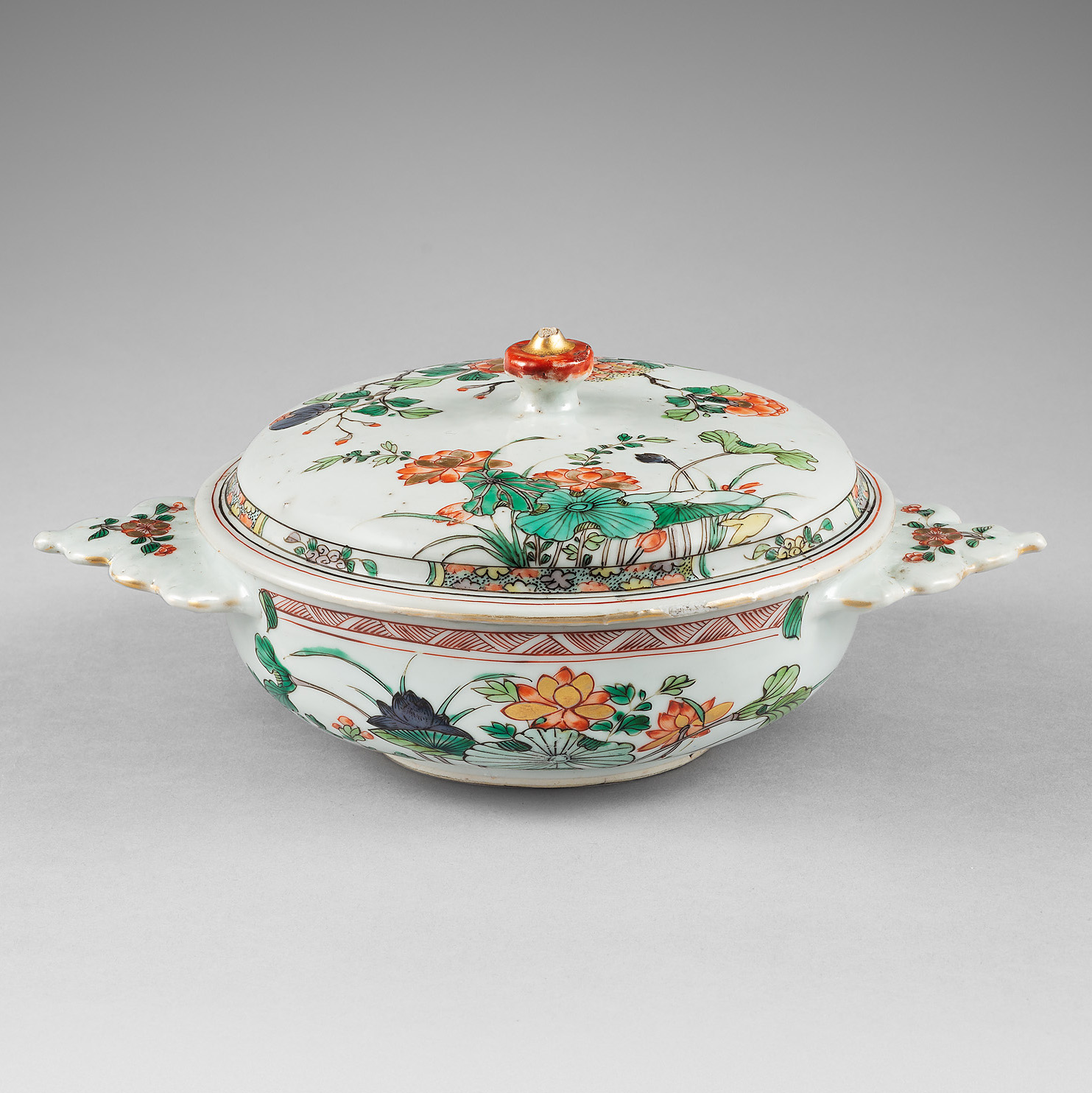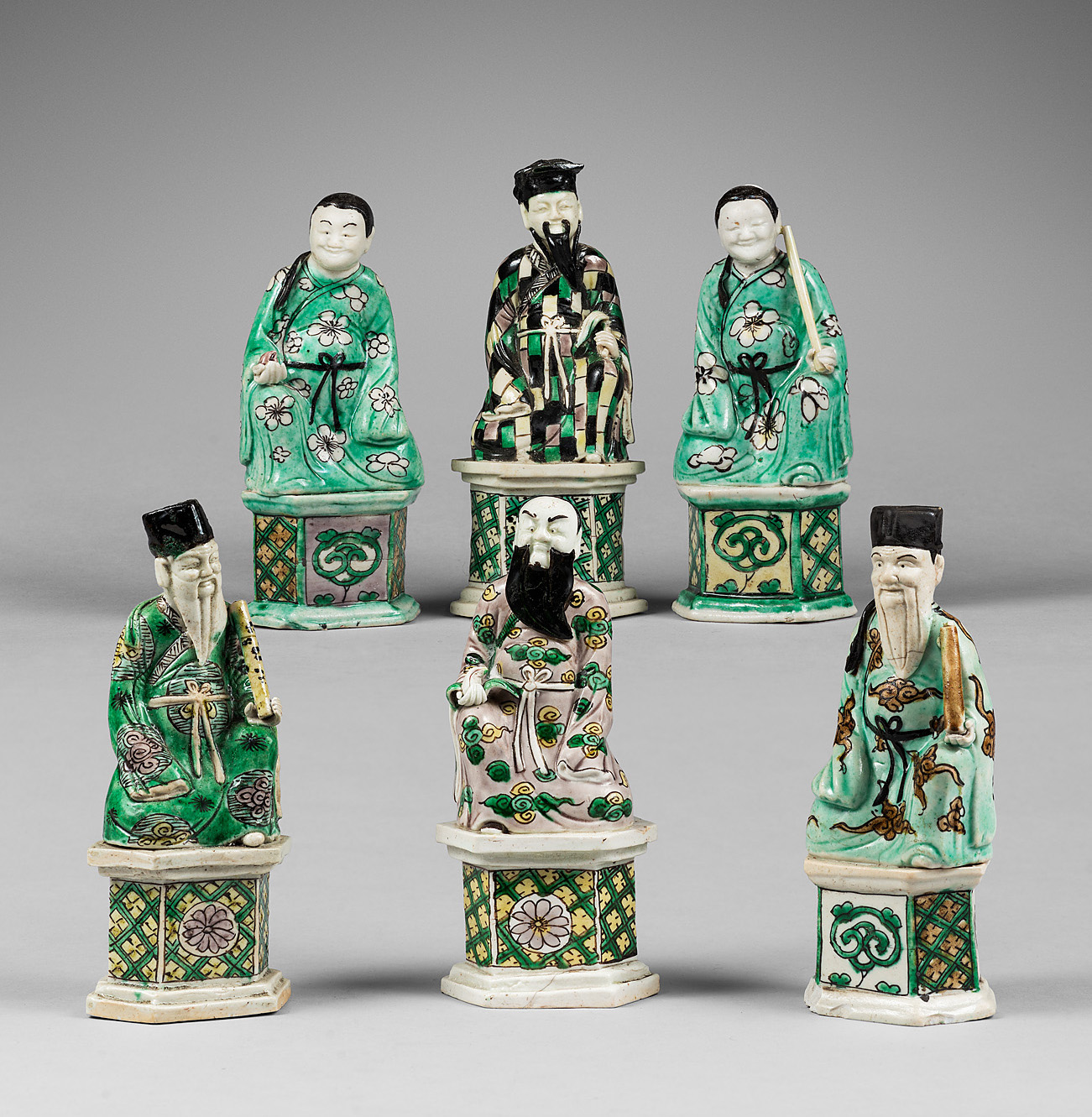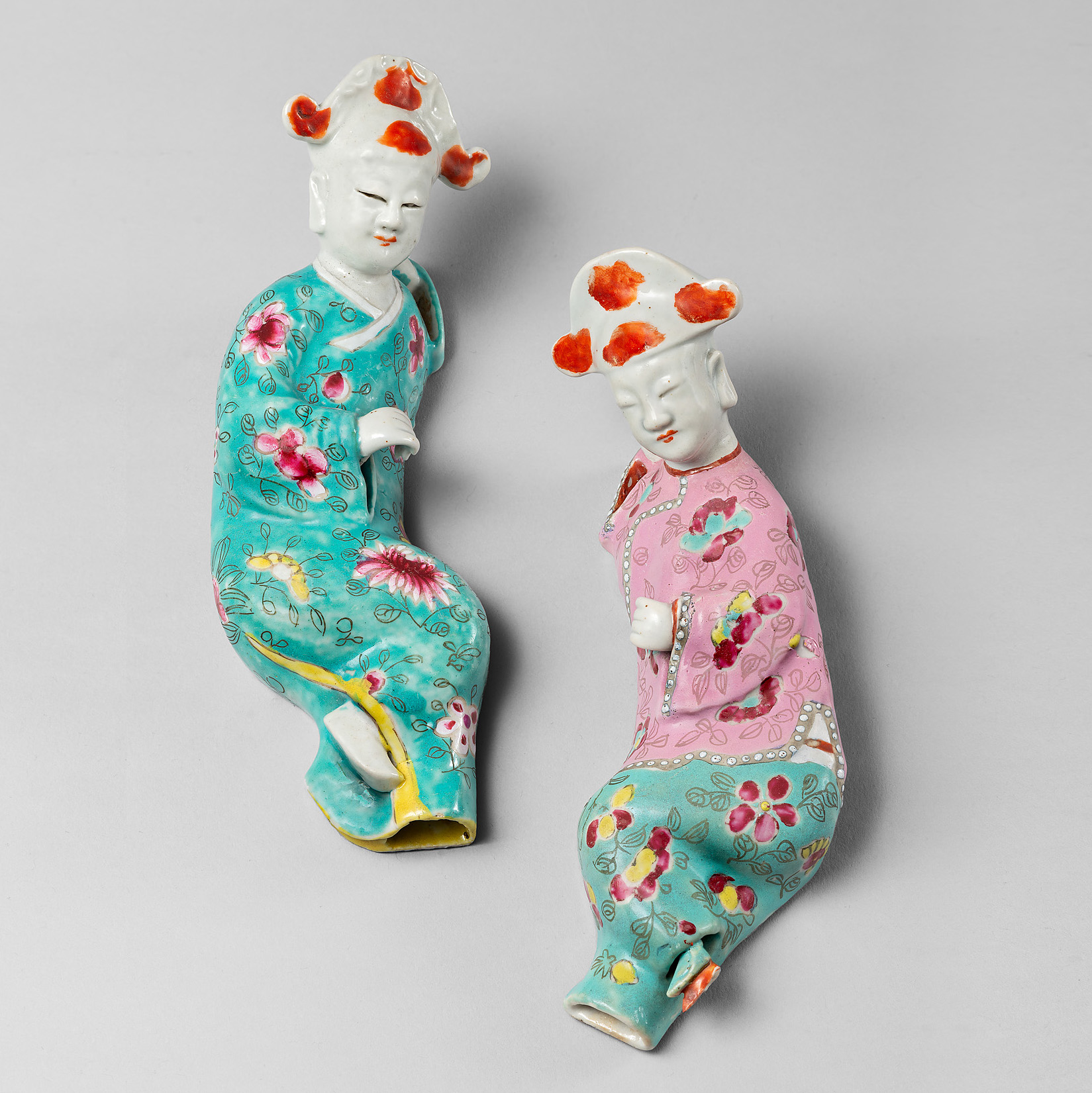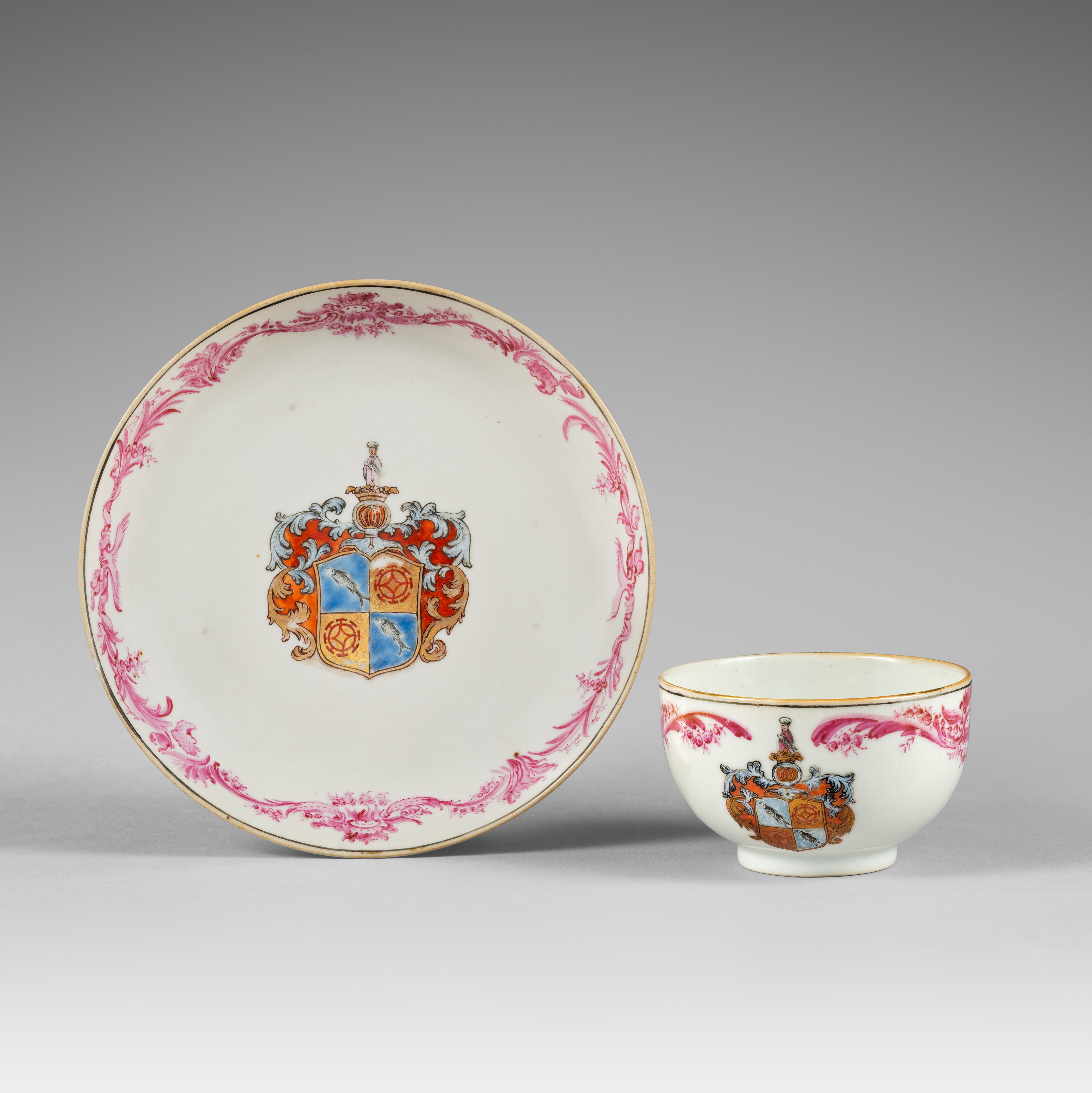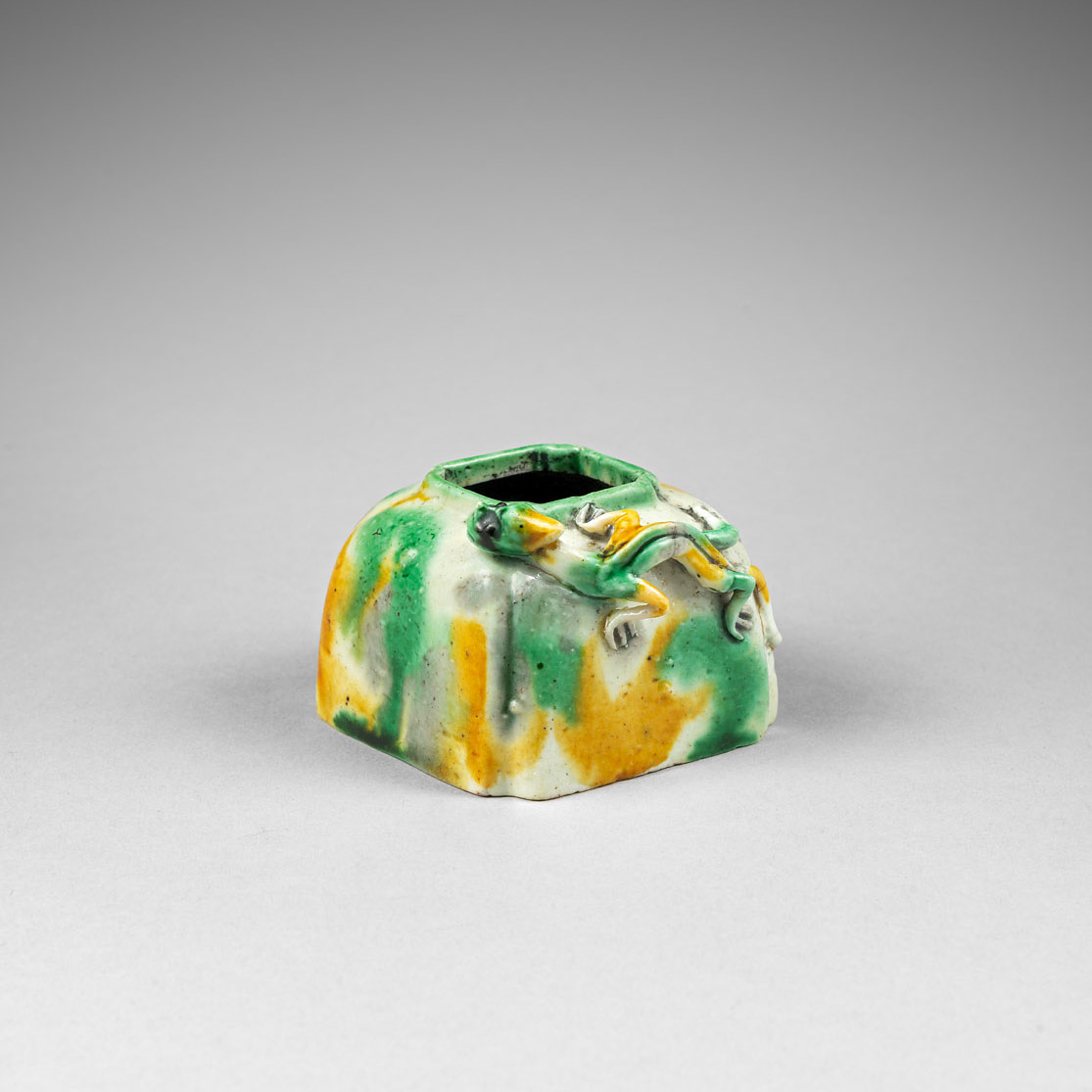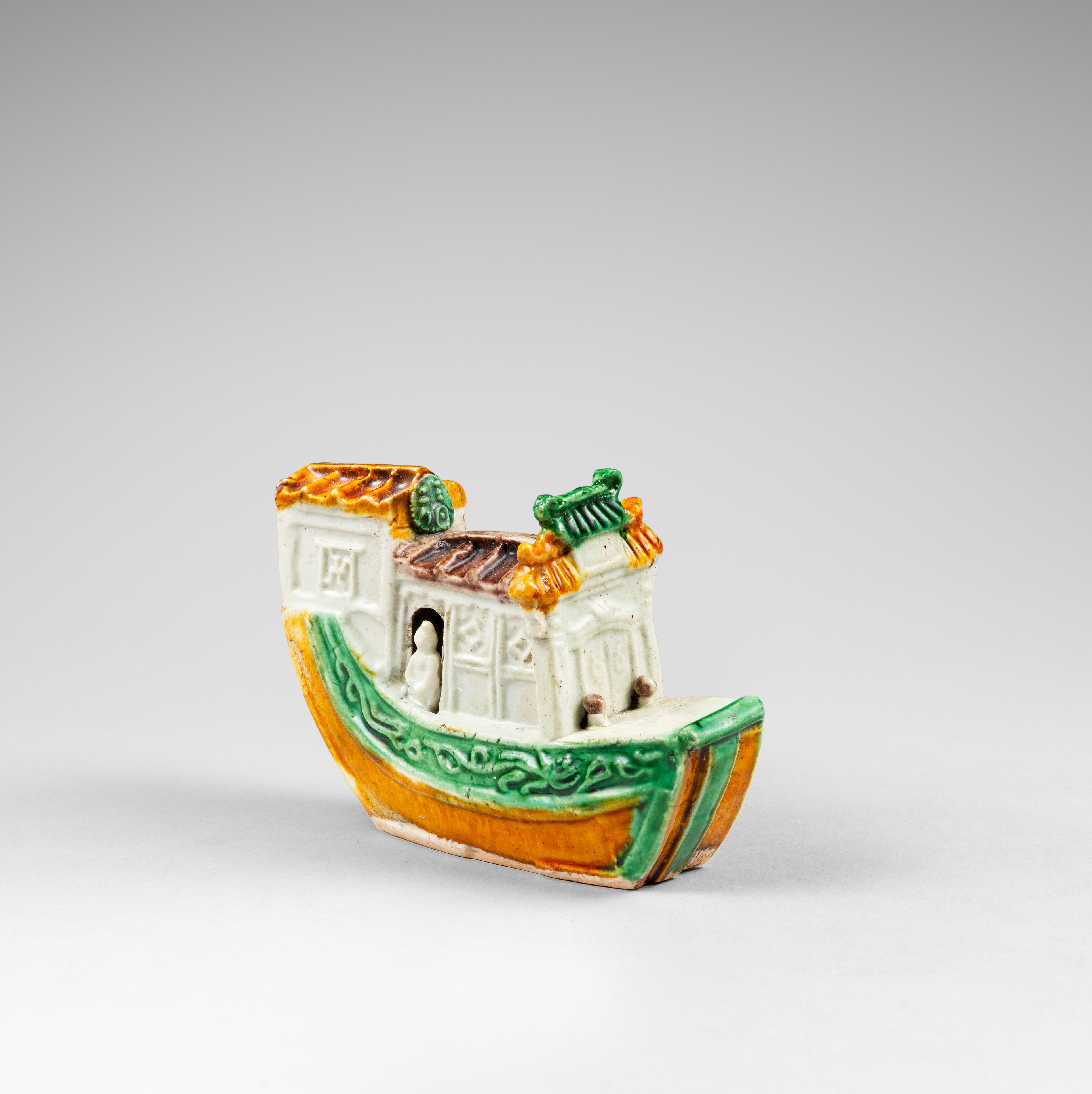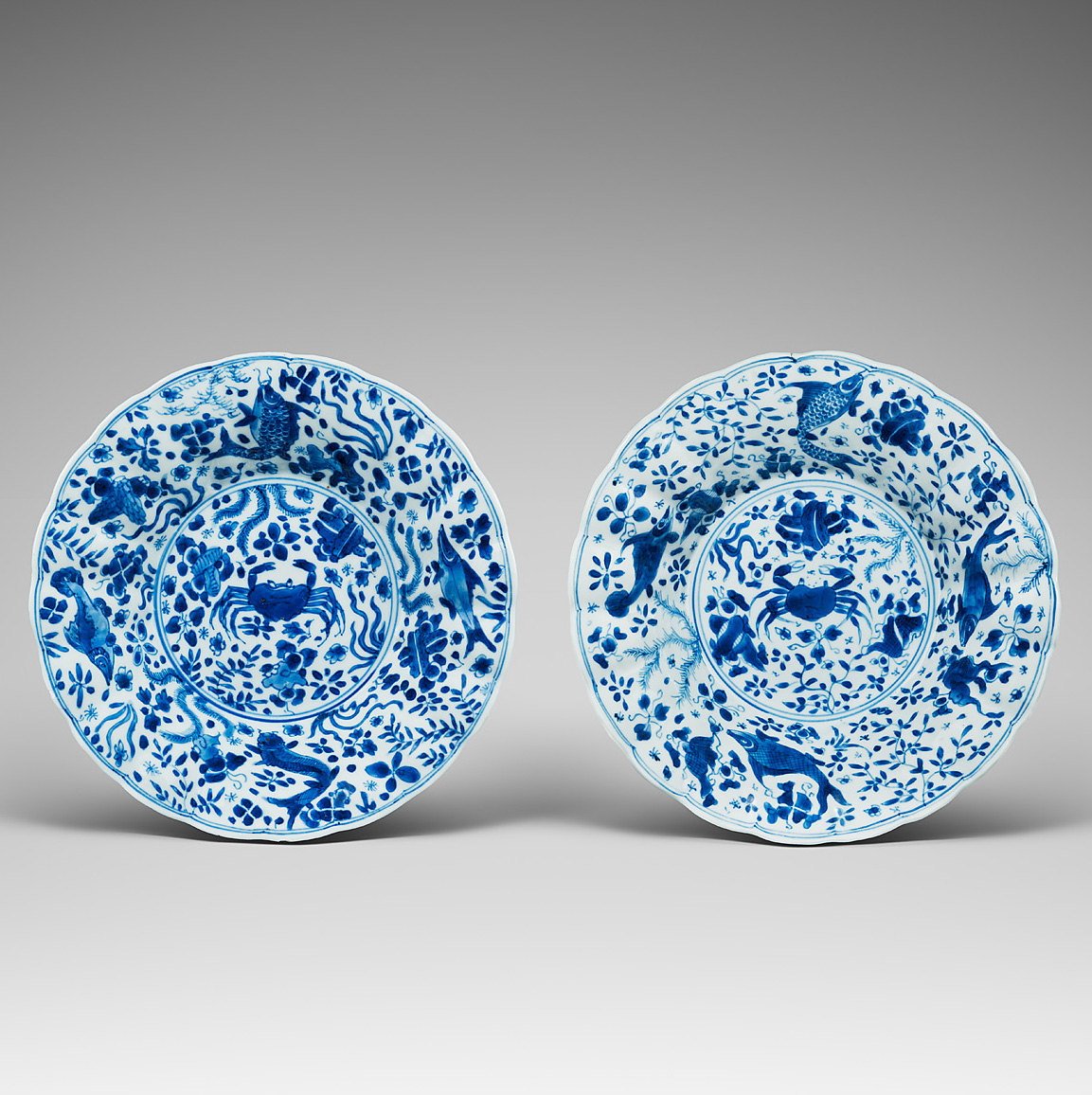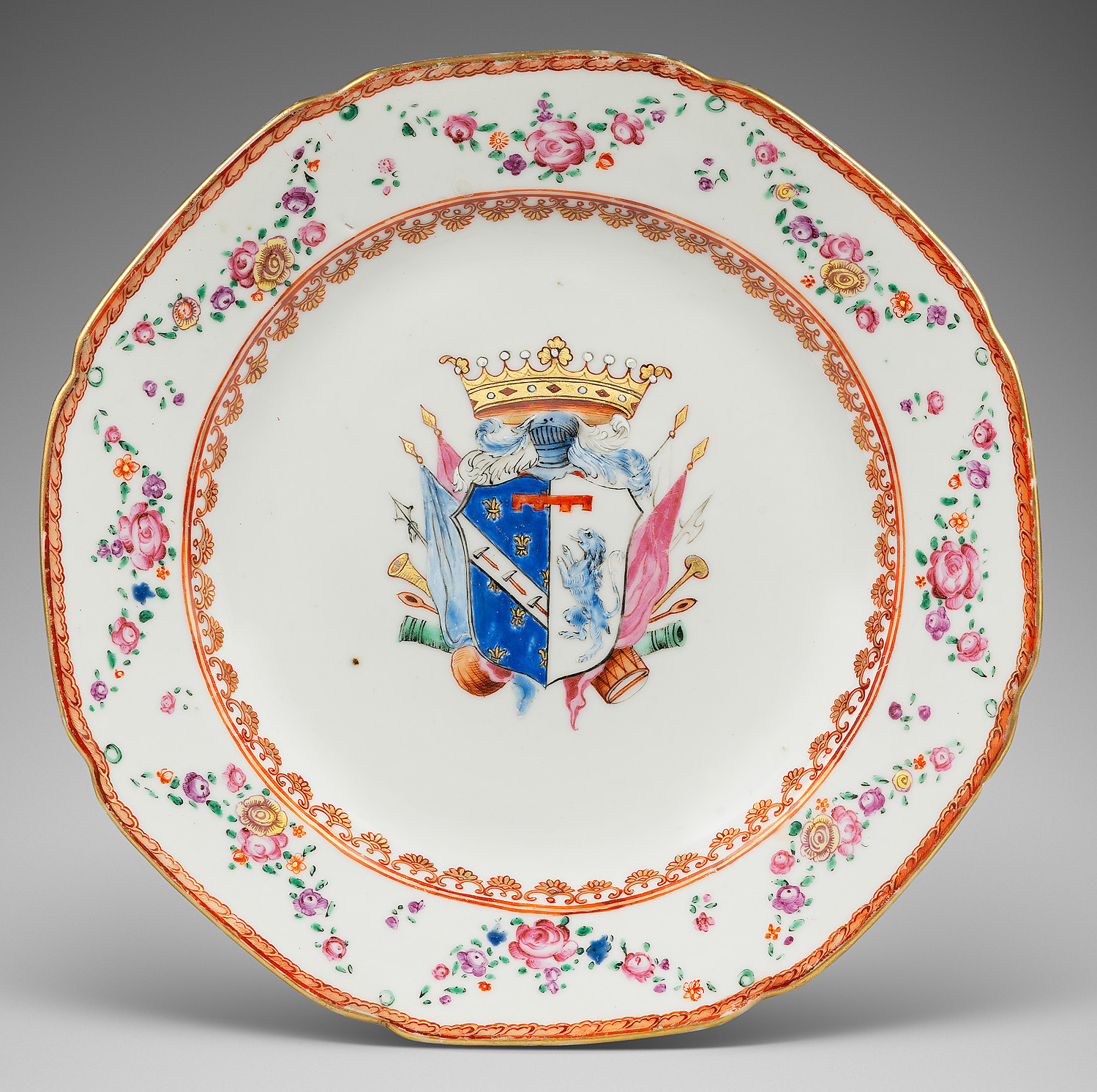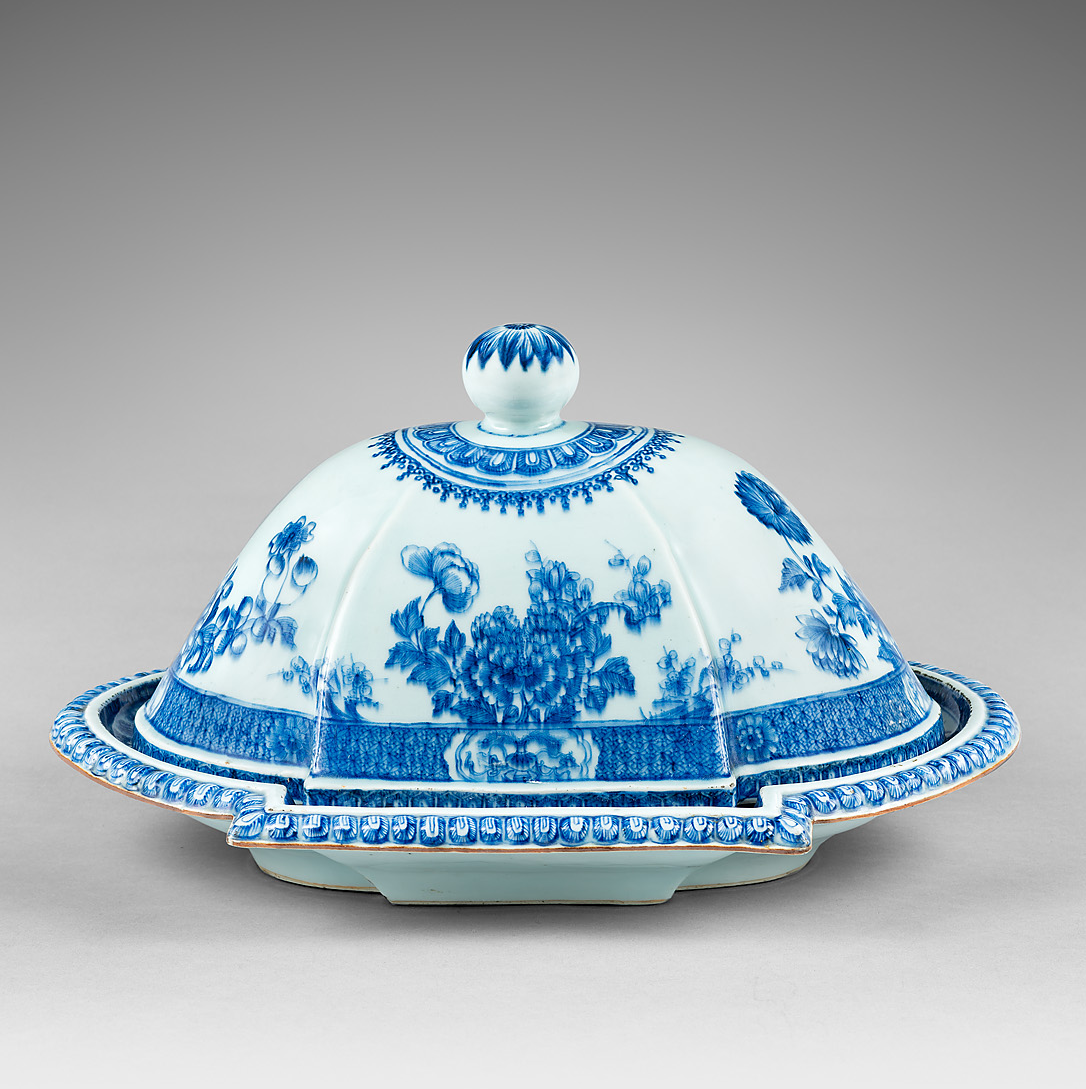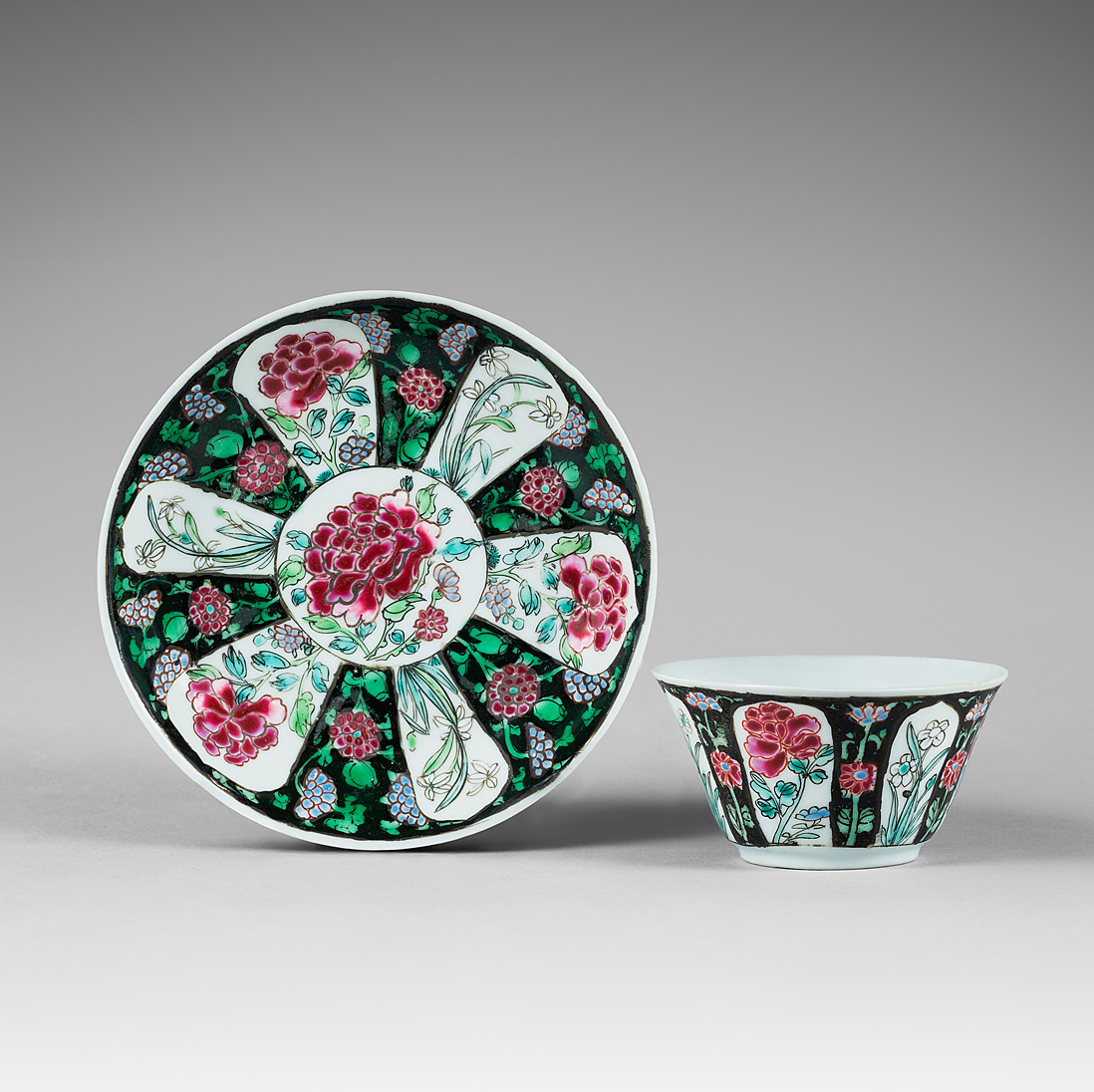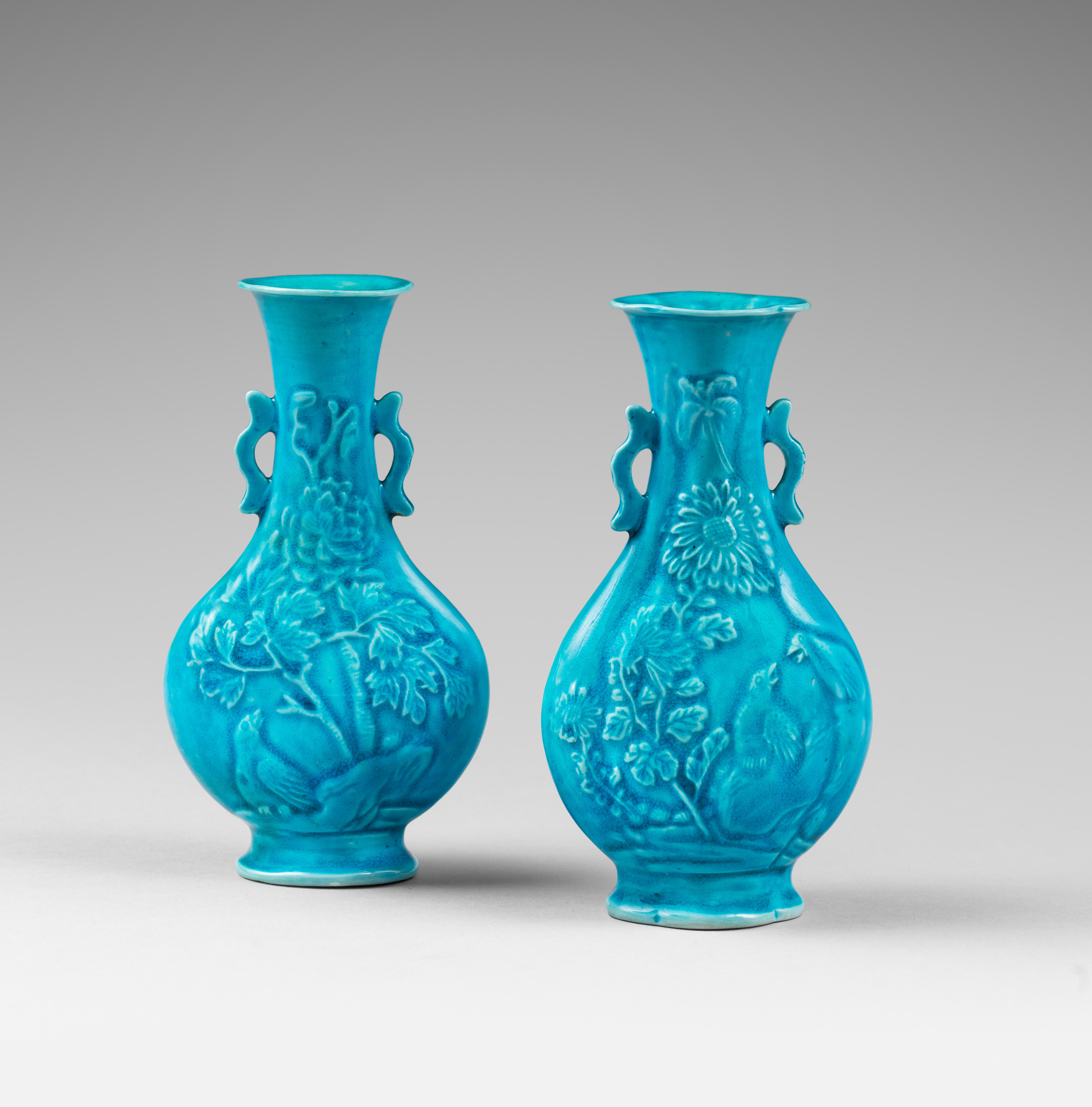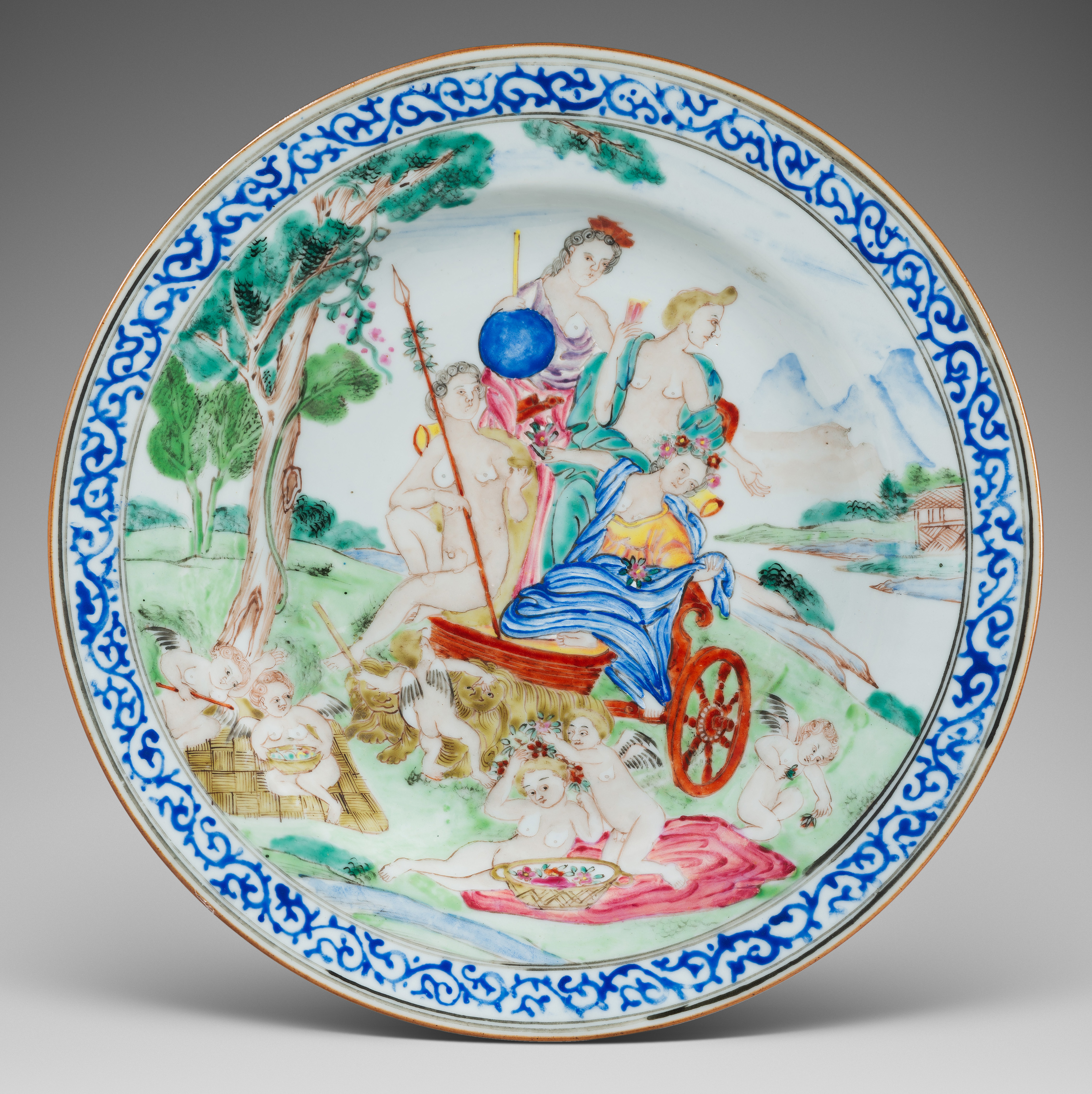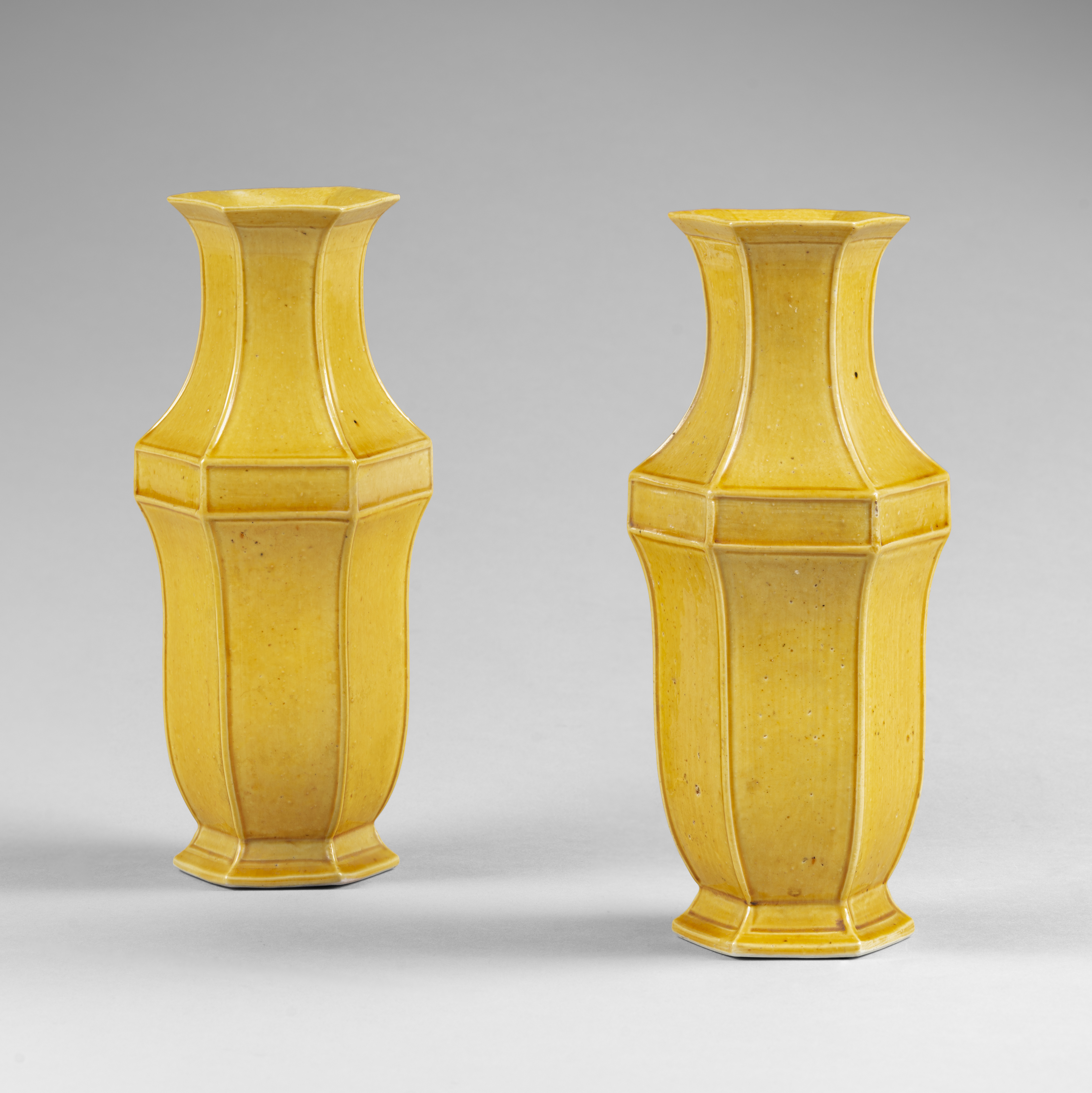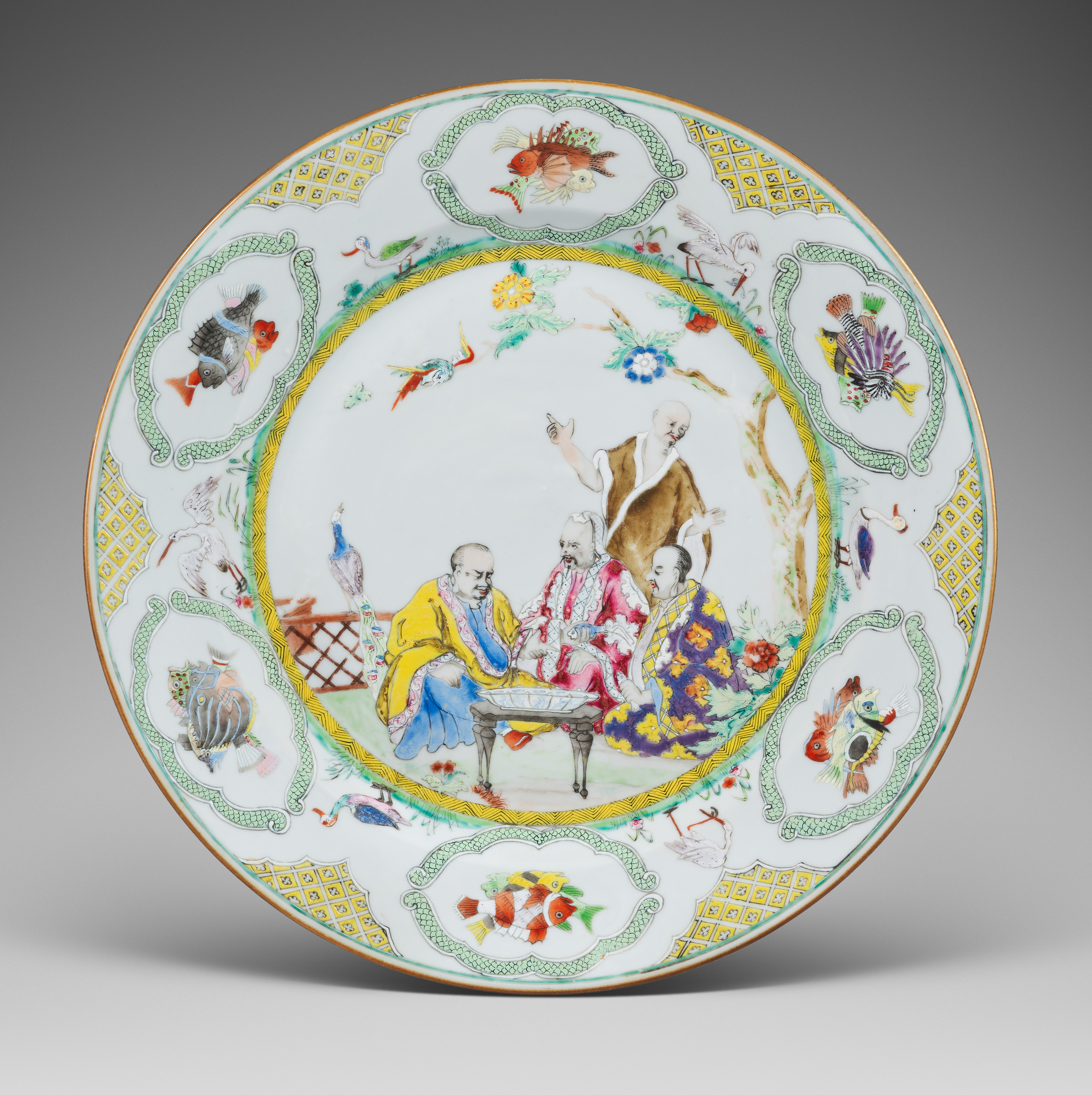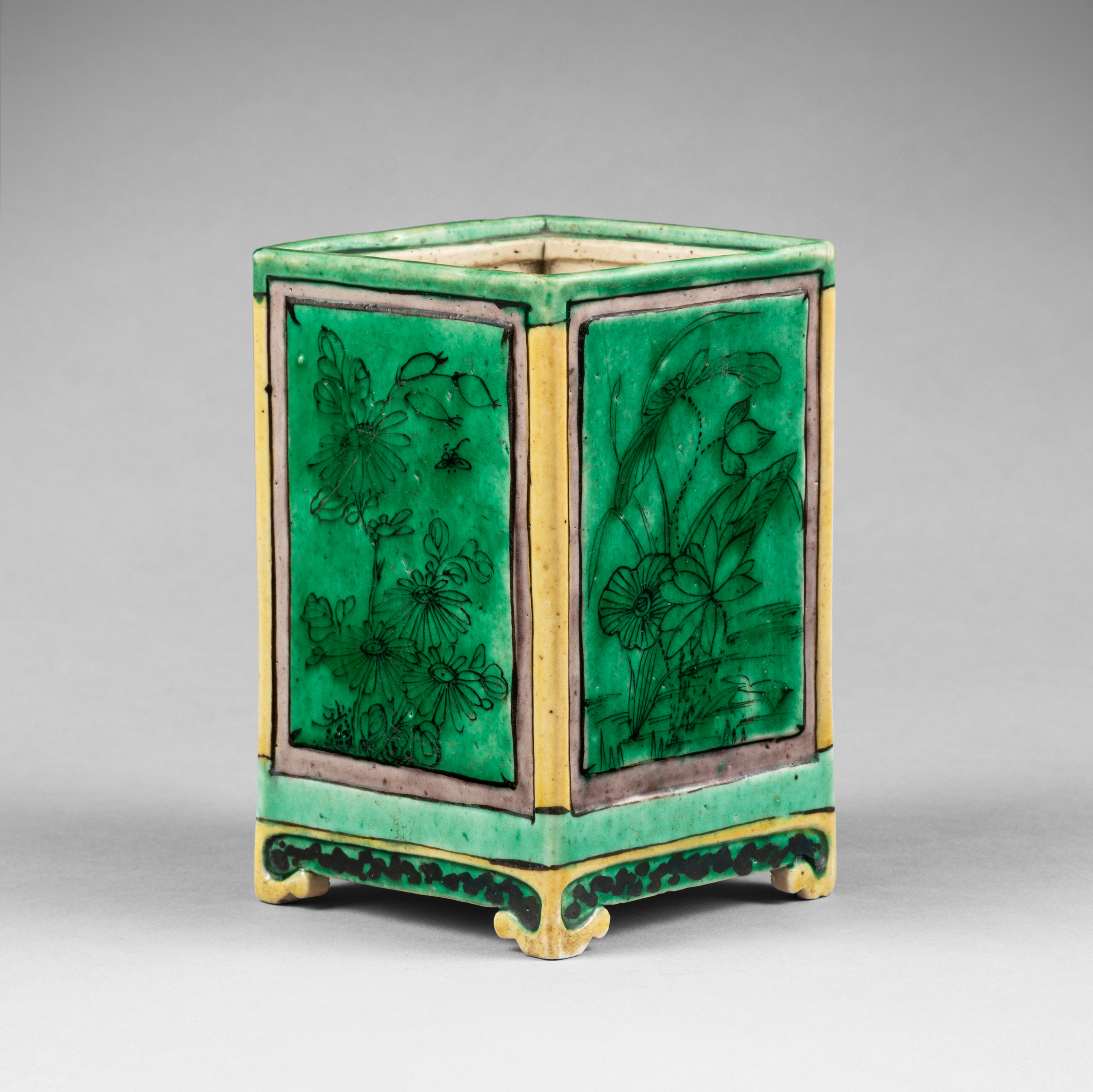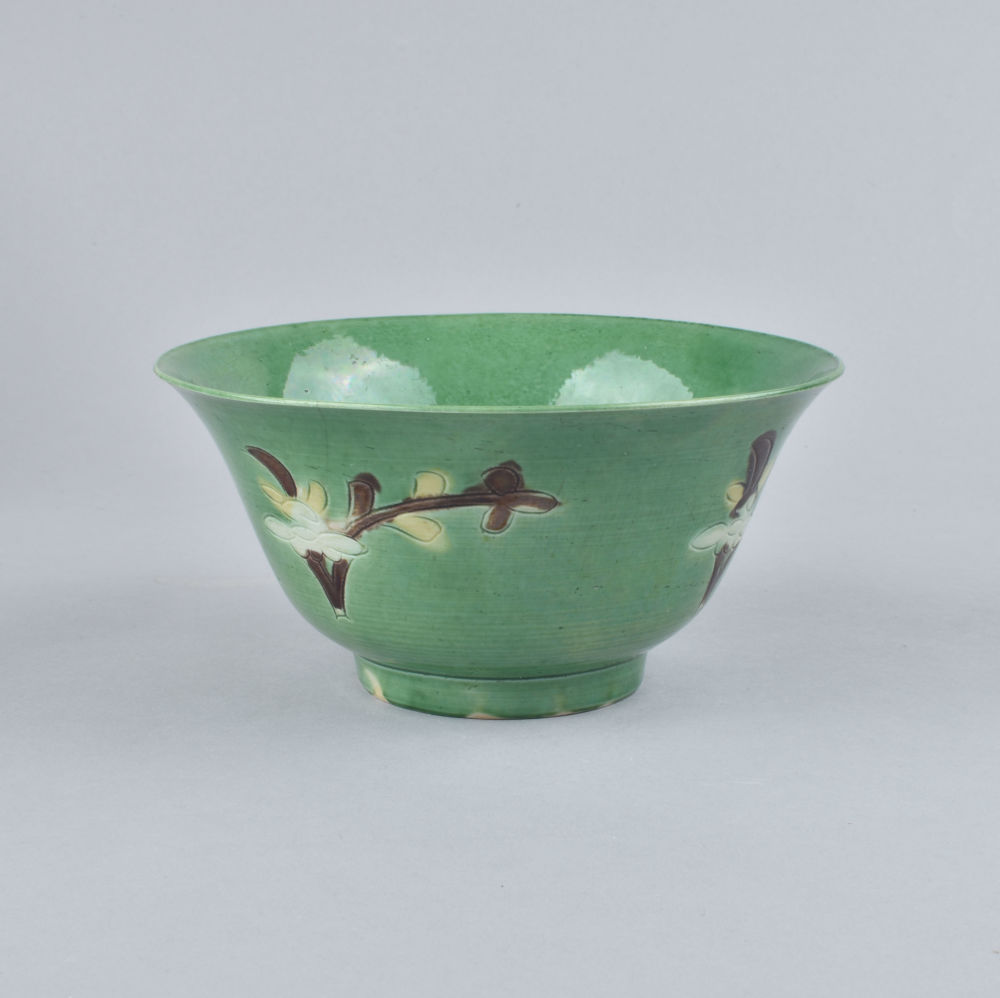
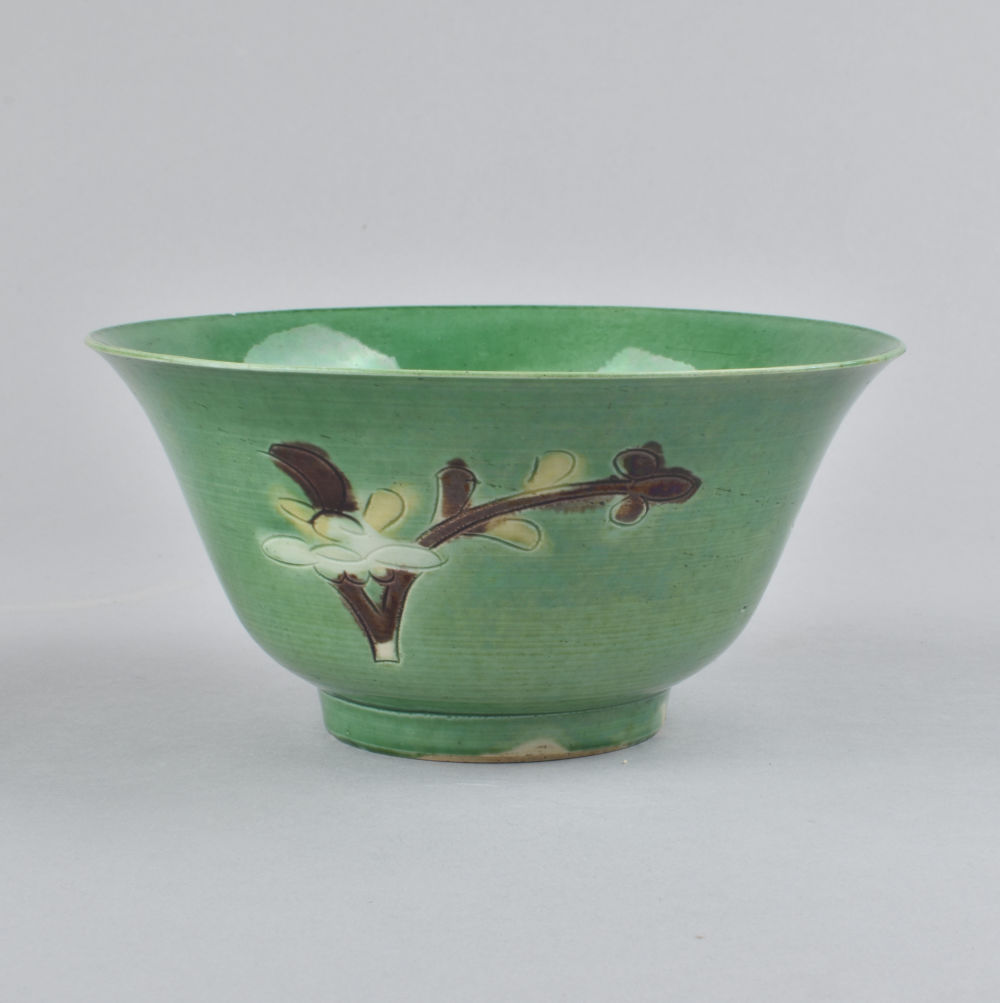
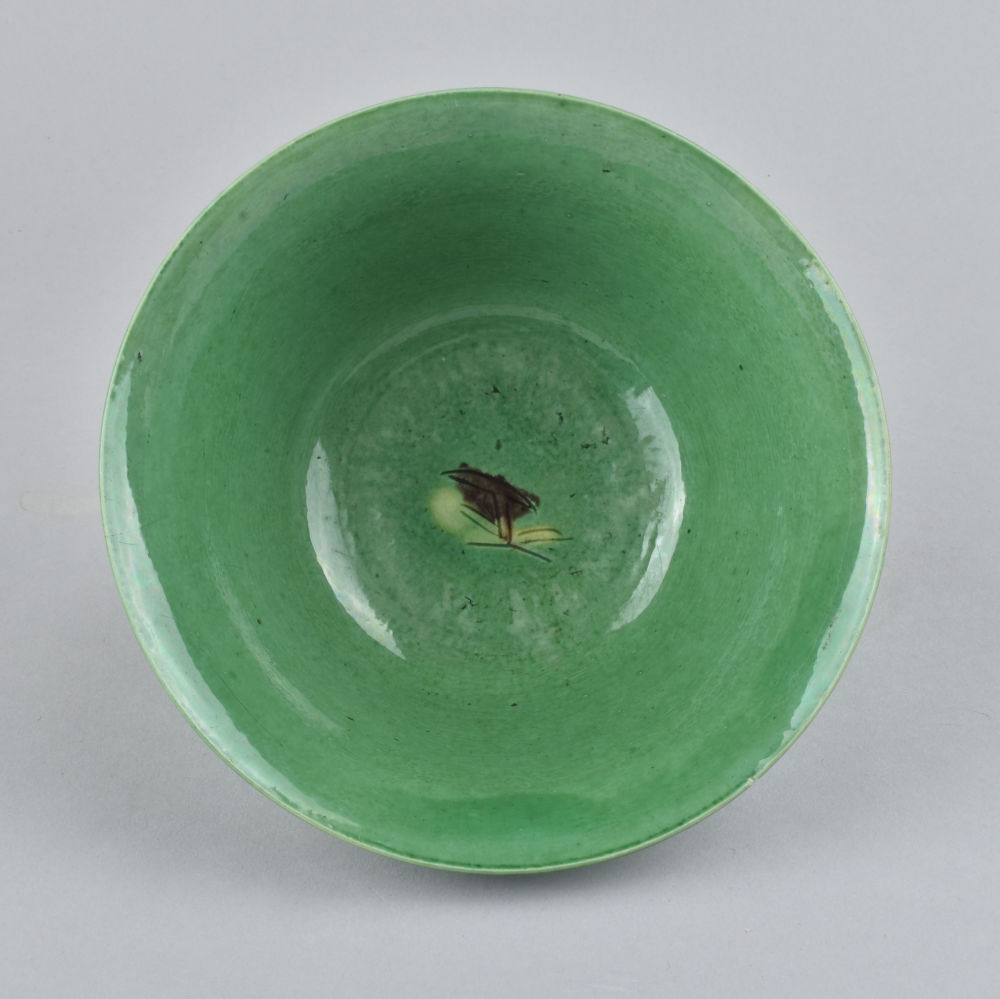
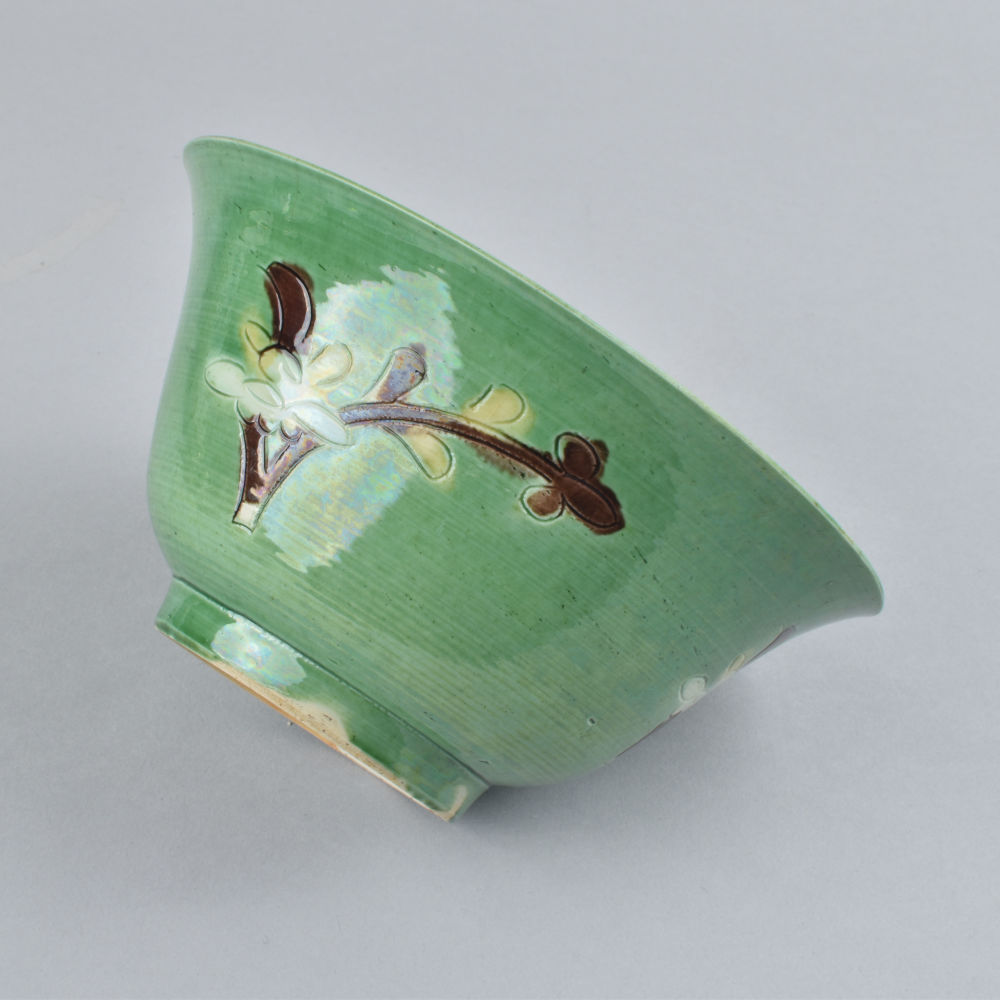
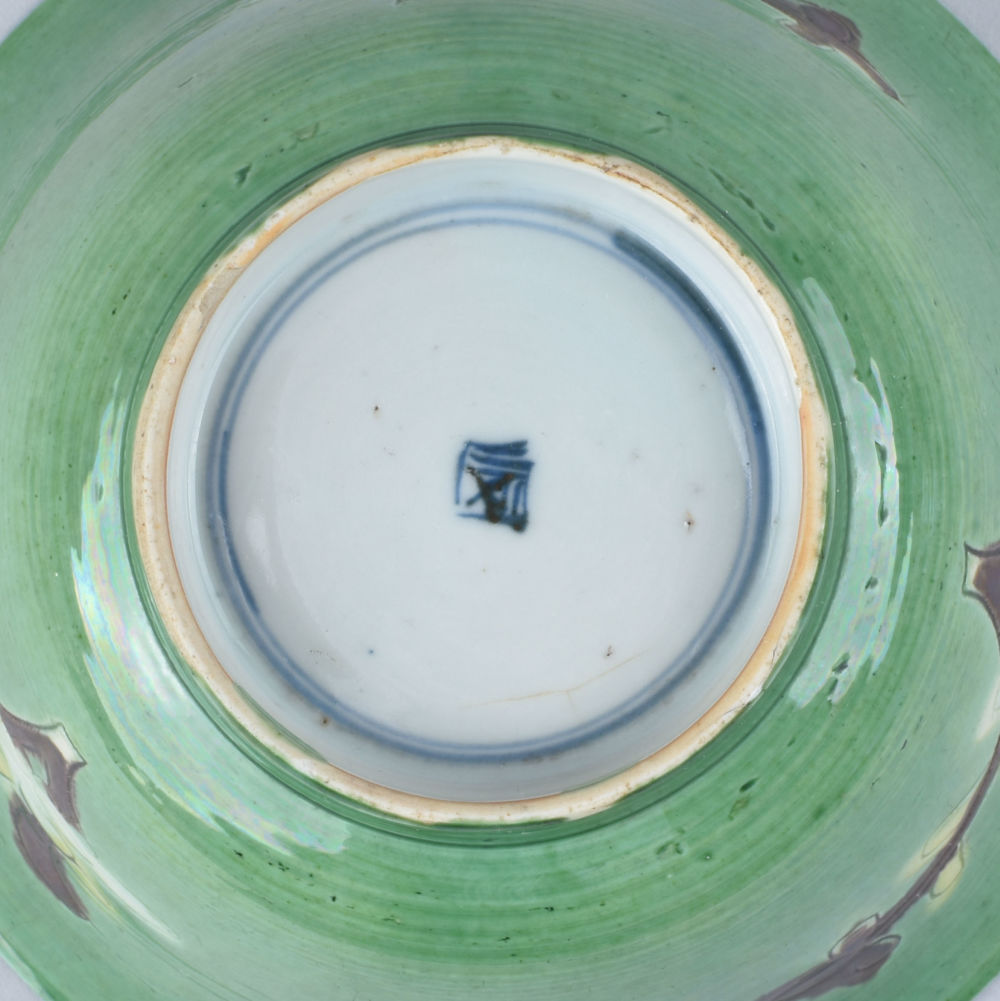
A small Chinese bowl decorated with famille verte enamels on the biscuit. Kangxi period
Bowl with rounded sides and a wide flaring rim, standing on a short, straight foot ring. The exterior incised with a repeating pattern of flowering branches painted in aubergine brown and yellow enamels and a clear glaze, on a green enamel ground. A small lingzhi fungus is incised in the centre of the interior. The recessed base has a mark in the centre surrounded by a double circle in underglaze cobalt blue.
- Country:
- China
- Period :
- Kangxi (1662-1722)
- Material:
- Porcelain (biscuit)
- Dimension:
- 5.90 in. (15 cm / diam) - 2.95 in. (7.5 cm / Hight)
- Reference :
- D194
- Status:
- sold
Related works
A very similar bowl is illustrated by Luisa Vinhais and Jorge Welsh in Biscuit: Refined Chinese Famille Verte Wares, Jorge Welsh Books, London and Lisbon, October, 2012.
Notice
The present bowl belongs to a group of bowls with several different shapes, usually generically describes as “Brinjal” bowls. Most of these bowls have a shop or maker’s mark in underglaze blue on the base, with appears frequently on export wares from the late Ming Dynasty (1368-1644) onwards. By reference to a single yellow-ground example with a Tianqi reign mark (1621-1627) in the Avery Brundage Collection, historian Stephen Little asserts that the whole group might be dated to the earlier Transitional period

